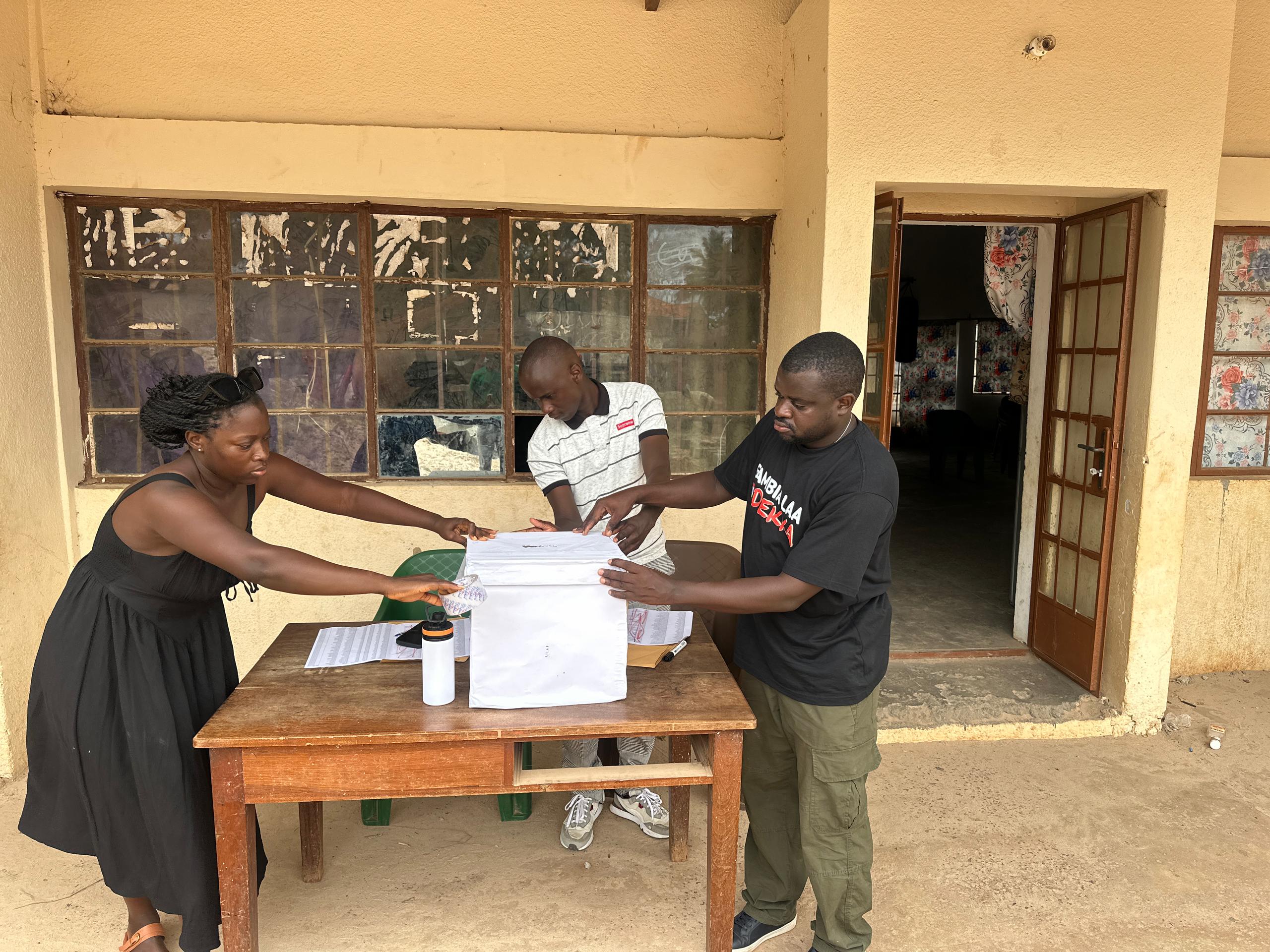By Sainabou Sambou
The National Youth Parliament election held at the Bakau Community Center concluded peacefully today, with Alieu Badara Jallow emerging victorious. However, the election was overshadowed by a dishearteningly low voter turnout, raising concerns about youth engagement in the democratic process and the effectiveness of civic education efforts in the community.
Out of 185 registered voters, only 84 cast their ballots, leaving 121 ballot papers unused—a turnout of just 45%. This lackluster participation came despite all three candidates—Alieu Badara Jallow, Kemo Darboe, and Oumie Gajaga—securing 100 nominations each during the pre-election process, indicating initial enthusiasm that failed to translate into votes.
Jallow clinched the win with 56 votes, followed by Darboe with 25, and Gajaga with a modest three votes. The significant vote gap and the low turnout sparked discussions about the challenges of mobilizing young people for political participation.
Presiding officer Amie Touray expressed disappointment at the turnout but emphasized the importance of the Youth Parliament initiative. “This shows that more awareness and civic education are needed. Many youths don’t fully understand the value of this election,” Touray said. “This platform prepares them for national leadership roles and exposes them to how governance and democracy work.” She emphasized the election’s role in cultivating future leaders, offering a rare opportunity for young people to participate in governance processes beyond elite circles.
Voters who participated expressed high expectations for the winning candidate, with many calling for action on pressing issues such as unemployment, youth empowerment, and irregular migration—a persistent challenge in Bakau. Shireta Colley, a voter, said she supported a candidate she believed could amplify youth voices and drive change. “I voted because I want to see real development, especially for the youth,” she said.
Muhammed Lamin Sanyang echoed similar sentiments, highlighting the economic hardships faced by young people. “The country is hard, and unemployment is too high. We need someone who will bring opportunities for the youth and help reduce irregular migration,” he said, reflecting on the urgency of addressing the factors driving young Gambians to risk dangerous journeys abroad.
Another voter, Abdoulilah Sanneh, pointed to the cultural significance of football in Bakau and its potential as a tool for youth engagement. “Football is a serious part of youth life in Bakau—it’s more than just a game. I hope the winner will invest in youth programs and help tackle migration, which has taken many lives in this community,” he said.
Oumie Gajaga, the sole female candidate, garnered only three votes; however, her participation marked a milestone for gender representation in youth politics. Observers noted that her unsuccessful candidacy sends a powerful message about the need for more young women to contest leadership roles in male-dominated spaces. Efforts to reach Gajaga for comment at the polling station were unsuccessful.
Kemo Darboe, who secured 25 votes, expressed disappointment at the results but commended the transparency of the electoral process. “I was surprised because I had a lot of support during my campaign. But the turnout was poor. I don’t think people fully understand the importance of the National Youth Parliament election,” he said. Despite his loss, Darboe called for unity and collaboration with the winner. “If Alieu Badara Jallow is willing to work together, I’m open to it. What matters most is Bakau and the future of our youth. He must listen to them, understand their needs, and act.”
Kemo Darboe
Attempts to interview Jallow, the winner, were also unsuccessful, as he was unavailable at the polling center from the start of voting until the polls closed.
The low turnout has sparked broader concerns about youth disengagement in Bakau and beyond. Touray emphasized the long-term value of such elections, stating, “This isn’t just about today’s vote. It’s about grooming a generation that understands governance and is ready to lead. Most young people don’t have that experience unless they’re part of a certain circle. This gives them a platform to learn and grow.”
As Bakau’s youth look to Jallow to address their concerns, the election’s low participation is a stark reminder of the work needed to bridge the gap between young people and the democratic process. Without increased civic education and outreach, the potential of initiatives like the National Youth Parliament risks being undermined by apathy.
The post Low Voter Turnout Mars National Youth Parliament Election in Bakau appeared first on The Alkamba Times.




